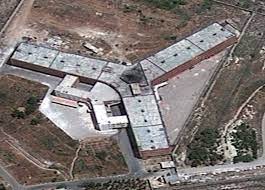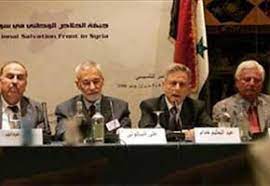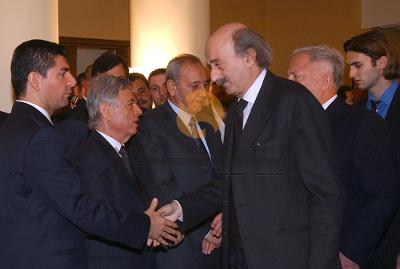Dear Syrian brothers,
On this day, June 5, 1967, the second catastrophe to befall the Arab world occurred as a result of Israeli aggression against Egypt, Syria, and Jordan, leading to the occupation of Sinai, the West Bank, and the Golan Heights.
At that time, the world was stunned and the Arabs were deeply shocked, as the defeat came after a series of political speeches and slogans, particularly in Egypt and Syria, promising victory. It is painful that, at this stage, the responsible circles have failed to conduct a critical review and assessment of the causes of the catastrophe, specifically examining the issue of responsibility, and drawing lessons to shape new internal and external policies aimed at defeating aggression, liberating the land, and restoring the national rights of the Palestinian people.
External factors have played a significant role in shaping the events that have affected the Arabs, starting from the Balfour Declaration during World War I in 1917, which led to the first calamity and the displacement of hundreds of thousands of Palestinians, the emergence of the Palestinian cause, and the establishment of the State of Israel. These countries have provided substantial military, economic, scientific, and political assistance to Israel, enabling it to build a powerful military force, while denying the Arabs the means to build their own power. This assistance has been a crucial factor in the power imbalance that favors Israel over the Arabs.
However, external support for Israel should not overshadow the major mistakes and subjective factors within the Arab system in general and the regimes that have been targeted by aggression in particular. These mistakes and gaps have contributed to the occurrence of the second calamity.
On this painful anniversary, it is imperative that we engage in a thorough review and learn from the past, as the Israeli occupation persists, the Israeli project remains in existence, and the Palestinian people continue to be divided between those living under occupation and facing aggressive and brutal practices, and those living in exile, enduring significant hardships while hoping for a return to their homeland.
Since the Palestinian catastrophe in 1948, the Arab regimes have dealt with the situation through Arab summit conferences and meetings of the League of Arab States, issuing a series of resolutions and statements that lacked a realistic balance. Meanwhile, Israel has been steadily building its military, economic, political, and scientific power, reducing the question of Palestine to a mere instrument exploited by governments and political factions in their internal conflicts.
The failure of the Arab regimes to develop a comprehensive project aimed at protecting the Arabs, defending their rights, ensuring their homeland’s prosperity, securing their safety, and achieving economic integration and scientific cooperation has been one of the primary reasons behind the state of helplessness experienced by the Arabs at that time. Instead, they became entangled in peripheral conflicts, oblivious to the dangers posed by the Israeli project in the region, which threatened their security and future.
In Syria, the situation was no different from the rest of the Arab system in terms of the absence of a national project that could meet the requirements of national security and achieve the major goals of the Syrian people, particularly in supporting the cause of Palestine. During that time, political discourse filled with slogans overshadowed the practical program needed to fulfill these aspirations. The situation was further complicated by a series of coups that the country experienced, along with the involvement of the army in political affairs. This played a role in weakening the army and removing numerous qualified officers, starting from Hosni Al-Zaeem’s coup at the end of March 1949 and continuing until the March 1963 movement, encompassing both phases of unity with Egypt and subsequent separation.
Following the March 1963 movement, two contradictory situations emerged. The first was an escalation in political discourse, focusing on the liberation of Palestine, hostility towards imperialism, and rivalries with several Arab countries. The second situation involved a decision to transform the army into an ideological, partisan army. As a result, a significant number of qualified officers were dismissed and replaced by a group of reserve officers who performed service duties. All of this led to a shift in the army’s nature, transforming it from a national army to a partisan one. It also resulted in subsequent changes to the army’s national structure.
It is important to note that partisan conflicts played a significant role in keeping many Baathist officers away from the army.
The transformation of the army from a professional force to a partisan one prioritized political loyalty over military competence, leading to the placement of incompetent individuals in leadership positions within the armed forces.
The seizure of power and the establishment of a revolutionary totalitarian system, coupled with the division of society into revolutionary and progressive forces on one hand and right-wing and reactionary forces on the other, disrupted political life, abolished the role of constitutional institutions, and exercised power under emergency law. These factors all played a significant role in weakening the country, diverting its attention from the core issue of Palestine, and hindering the attainment of major goals.
The concentration of power resulted in a division between the ruling regime and societal forces in Syria. Additionally, this approach led to a decline in the national economy and the exacerbation of the country’s complex conditions.
During that time, discussions about the popular liberation war and the liberation of Palestine lacked a solid foundation. Regardless of the form or type of war, whether traditional or popular, comprehensive national unity is necessary, with the people serving as the source of authority and all individuals participating in shouldering responsibility.
How can we discuss the war and the liberation of Palestine when internal tensions prevail, whether within the regime or between the regime and society? Moreover, Arab tensions have escalated to the point of dividing Arabs into revolutionary and progressive forces versus reactionary Arabs who align themselves with colonialism and Zionism.
Dear fellow citizens, one of the objectives of the October 1970 movement was to rectify the mistakes that weakened Syria and contributed to the June calamity. Indeed, several measures were taken during the initial phase of the movement, including political and economic openness, allowing existing parties to exercise their activities, drafting an election law, establishing the People’s Assembly, and adopting a permanent constitution. However, this path declined as President Hafez al-Assad isolated himself in power and transformed constitutional and party institutions into a front for his authority.
The most concerning aspect was the President’s family’s control over state organs and institutions, coupled with the practice of corruption to monopolize wealth in the country.
The shift from a state of institutions to an individual-based state and subsequently a family-based state, along with the use of emergency law to suppress and curtail people’s freedoms and livelihoods, became prominent phenomena that indicate the reasons for the state’s weakness.
On the anniversary of the June 5, 1967 catastrophe, under this system built on two pillars, the first being tyranny characterized by the use of repressive means, the suppression of political life, intimidation of the people, and the unrestrained actions of security services in arresting, blackmailing, and mistreating citizens. The second pillar is corruption, legitimized through a series of decisions and laws under the pretext of economic reform and the implementation of a social market economy. This has left the country in a state of vulnerability, anxiety, and severe suffering, while the ruling family and their associates control the country’s economy, economic and service institutions, and public resources. One member of the ruling family becomes the owner or investor in a majority of the country’s resources.
We must ask ourselves how Syria can liberate its territory before it frees itself from the ruling junta that drains and weakens it.
Your struggle, dear citizens, to achieve national salvation and build a civil democratic state is the path to liberating the Golan Heights and attaining progress, development, and sources of power.
On this painful occasion, I appeal to the armed forces, who are victims of this regime that has lost its national role, turning them into a body solely to protect and safeguard its corruption. The regime has also undermined their dignity through discriminatory practices among its officers, granting privileges and benefits to relatives and close associates, allowing corruption to flourish, manipulating and controlling the army, and disseminating information about their colleagues. Meanwhile, the overwhelming majority of the armed forces lack officers and soldiers who are provided with the bare minimum requirements for a decent life, suffering from poverty and deprivation.
Military personnel, your national responsibility is significant in restoring your role, preserving the dignity of the army, reclaiming your national standing, and aligning yourselves with the people.
On this painful anniversary, we must remember that totalitarian and authoritarian regimes only bring suffering, hardships, weakness, and defeats to their people.
Long live Syria.



